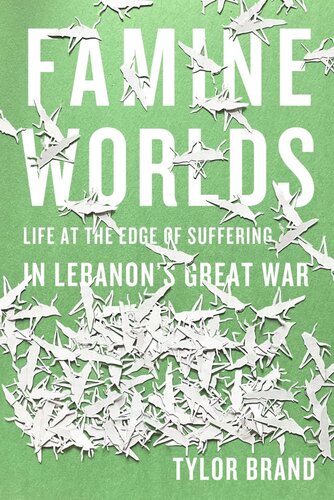

Most ebook files are in PDF format, so you can easily read them using various software such as Foxit Reader or directly on the Google Chrome browser.
Some ebook files are released by publishers in other formats such as .awz, .mobi, .epub, .fb2, etc. You may need to install specific software to read these formats on mobile/PC, such as Calibre.
Please read the tutorial at this link: https://ebookbell.com/faq
We offer FREE conversion to the popular formats you request; however, this may take some time. Therefore, right after payment, please email us, and we will try to provide the service as quickly as possible.
For some exceptional file formats or broken links (if any), please refrain from opening any disputes. Instead, email us first, and we will try to assist within a maximum of 6 hours.
EbookBell Team

4.8
74 reviewsWorld War I was a catastrophe for the lands that would become Lebanon. With war came famine, and with famine came unspeakable suffering, starvation, and mass death. For nearly four years the deadly crisis reshaped society, killing untold thousands and transforming how people lived, how they interacted, and even how they saw the world around them. Famine Worlds peers out at the famine through their eyes, from the wealthy merchants and the dwindling middle classes, to those perishing in the streets.
Tylor Brand draws on memoirs, diaries, and correspondence to explore how people negotiated the famine and its traumas. Many observers depicted society in collapse—the starving poor became wretched victims and the well-fed became villains or heroes for the judgment of their peers. He shows how individual struggles had social effects. The famine altered beliefs and behaviors, and those in turn influenced social relationships, policies, and even the historical memory of generations to come.
More than simply a chronicle of the Great Famine, however, Famine Worlds offers a profound meditation on what it means to live through such collective trauma, and how doing so shapes the character of a society. Brand shows that there are consequences to living amid omnipresent suffering and death. A crisis like the Great Famine is transformative in ways we cannot comprehend. It not only reshapes the lives and social worlds of those who suffer, it creates a particular rationality that touches the most fundamental parts of our being, even down to the ways we view and interact with each other. We often assume that if we were thrust into historic calamity that we would continue to behave compassionately. Famine Worlds questions such confidence, providing a lesson that could not be more timely.